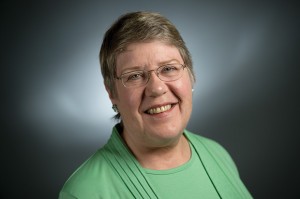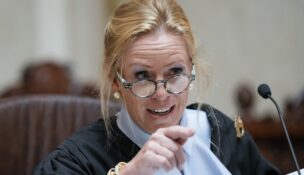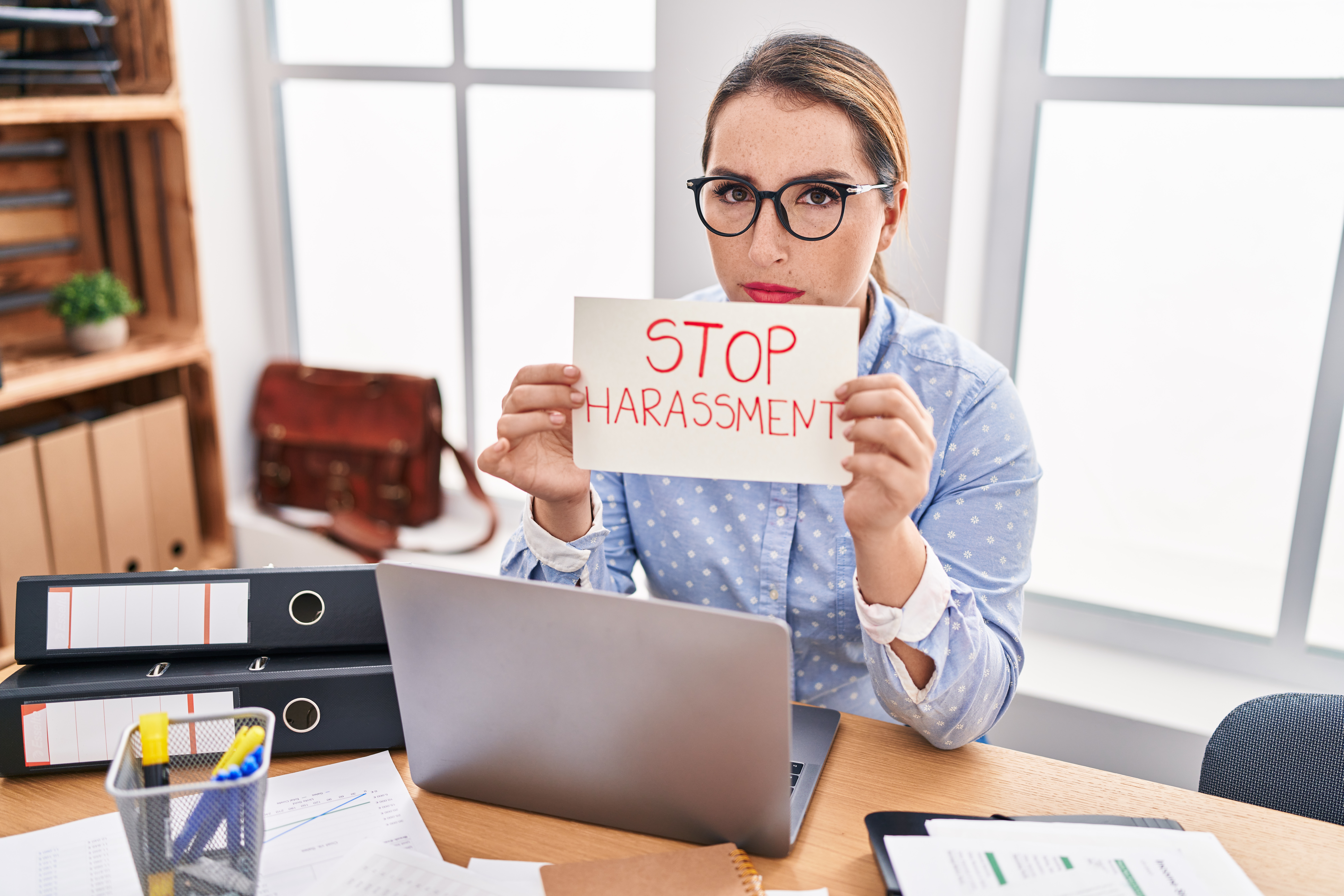Bench Blog says ‘goodbye’ with review of Colorado baker case
By: Bridgetower Media Newswires//June 15, 2018//
Bench Blog says ‘goodbye’ with review of Colorado baker case
By: Bridgetower Media Newswires//June 15, 2018//

16 years on the Milwaukee County Circuit bench and now serves as a
reserve judge. She also is of counsel with Nistler Law office SC. She can be reached at [email protected]
The U. S. Supreme Court sidestepped the issue of whether a Colorado baker discriminated against a gay couple seeking a wedding cake and instead decided that the baker had been treated unfairly by the commission adjudicating the discrimination charge.
The alleged discrimination
The facts of Masterpiece Cakeshop, Ltd. v. Colorado Civil Rights Commission may well be familiar given the extensive national media coverage since 2012.
Charlie Craig and Dave Mullins, a gay couple, planned on being married in Massachusetts since Colorado did not recognize gay marriage in 2012. They also planned to host a reception in Denver upon their return. To that end, they walked into Masterpiece Cakeshop and told Jack Phillips, the baker-owner, that they wanted a cake for their wedding.
Phillips replied that he does not “create” wedding cakes for same-sex weddings. “I’ll make your birthday cakes, shower cakes, sell you cookies and brownies, I just don’t make cakes for same-sex weddings.”
Shortly thereafter the couple filed a discrimination charge against Phillips under the Colorado Anti-Discrimination Act.
The anti-discrimination agency
The anti-discrimination act prohibits discrimination based on sexual orientation, among other things, in “the full and equal enjoyment” of goods and services of any “place of business engaged in any sales to the public and any place offering services … to the public.”
The couple’s discrimination claim was first investigated by the Colorado Civil Rights Division. The investigation found that Phillips had declined to sell custom wedding cakes to six other same-sex couples for the same reason he refused to do so for Craig and Mullins.
The division therefore found probable cause and sent the matter to the Colorado Civil Rights Commission. The commission referred the matter to an ALJ for a formal hearing.
The facts were not disputed so the matter was decided on competing summary judgment motions. Phillips claimed he was not discriminating but instead exercising his First Amendment rights to free speech and the free exercise of religion.
Specifically, Phillips argued that baking the cake would compel him “to exercise his artistic talents to express a message with which he disagreed.” The ALJ rejected the idea that preparing a wedding cake is a form of protected speech.
As to Phillips’ free exercise of religion defense, the ALJ determined that the anti-discrimination act was a “valid and neutral law of general applicability” and therefore applying it to Phillips did not violate the Free Exercise Clause.
Therefore, the ALJ ruled in favor of Craig and Mullins. Phillips appealed the ALJ’s decision to the commission.
Commission hearings
The seven-member commission held two public hearings. At each hearing, the commissioners opined on Phillips’ claim that he could refuse to bake the cake on the grounds of religious freedom.
Several times during the first hearing, the commissioners endorsed the view that religious beliefs cannot legitimately be carried into the public sphere or commercial domain. One said that Phillips can believe “what he wants to believe,” but cannot act on his religious beliefs “if he decides to do business in the state.”
At the second hearing, a commissioner spoke even more sharply: “I would also like to reiterate what we said in the hearing or the last meeting. Freedom of religion and religion has been used to justify all kinds of discrimination throughout history, whether it be slavery, whether it be the holocaust, whether it be—I mean, we—we can list hundreds of situations where freedom of religion has been used to justify discrimination. And to me it is one of the most despicable pieces of rhetoric that people can use to—to use their religion to hurt others.”
The commission voted to affirm the ALJ’s decision.
Phillips appealed to the Colorado court of appeals. The court rejected Phillips’ argument that the commission’s order violated religious freedom. Consonant with the ALJ’s decision, it relied on a U.S. Supreme Court case finding that the Free Exercise Clause “does not relieve an individual of the obligation to comply with a valid and neutral law of general applicability” on the ground that following the law would interfere with religious practice or belief.
The Colorado Supreme Court declined to take the case, so Phillips sought review by the U.S. Supreme Court.
U.S. Supreme Court
Justice Anthony Kennedy delivered the opinion which reversed the Colorado court of appeals, thus finding in favor of the baker.
Seven members of the court were united on only one basis for the outcome – that the hostility toward religion evinced by the commissioners’ statements during the public hearings impermissibly infected what should have been a neutral and impartial adjudicative process.
Deciding the case based on this procedural defect meant the court avoided the tougher question at the heart of the case — the question dealing with the tension between a state’s power to protect its homosexual citizens from discrimination and the Free Exercise Clause of the First Amendment.
Fractures under the surface
Despite the fact that seven justices joined the 21-page majority opinion, five participated in three concurrences totaling 30 pages.
Justice Elena Kagan, joined by Justice Stephen Breyer, reconciled the commission’s disparate decisions concerning Phillips’ refusal to bake a cake for a same-sex couple and three other bakers who refused to make anti-gay cakes for anyone thus discriminating against no one.
Justice Neil Gorsuch, joined by Justice Samuel Alioto, believed the majority opinion didn’t go far enough in its criticism of the commission’s process.
And Justice Clarence Thomas, joined by Justice Gorsuch, wrote that the baker’s free speech argument had merit.
Lastly, Justice Ruth Bader Ginsburg wrote a dissent, joined by Justice Sonia Sotomayor, in which she argued that the case was properly decided by the neutral and impartial court of appeals.
Commentary
Despite the public disappointment in this case being decided on a so-called technicality, there is plenty in this 59-page decision for each side in the debate about religious freedom and the protection of the civil rights of gays and lesbians.
The majority opinion voices both sides of the debate, and each concurrence fleshes out one side or the other.
In the end, the court awaits “further elaboration in the courts, all in the context of recognizing that these disputes must be resolved with tolerance, without undue disrespect to sincere religious beliefs, and without subjecting gay persons to indignities when they seek goods and services in an open market.”
Bench Blog says goodbye
After 5 years of writing this column, it is time to say goodbye. I have enjoyed the journey of analyzing and commenting on appellate court cases. I have found the four districts of our court of appeals to be vibrant and their opinions concise and free of posturing.
The same cannot be said of the Supreme Court. In addition, it has shown a sensitivity to criticism – so-called “tough talk” – complaining that criticism undermines respect for it as an institution, when it is its own ineffective, sometimes hostile, communication and processes that are really the issue. I look forward to the day when that court once again commands respect both in Wisconsin and nationally.
Legal News
- ‘Louder than a dog whistle’: Milwaukee protesters clear illegal tents, face no legal consequences
- Redistricting could draw attention to Wisconsin’s Med Mal legal gap
- Disbarred Attorney directly implicates Trump in testimony at hush money trial
- Rural Wisconsin voters face additional hurdles without ballot drop boxes
- Gov. Evers sues Republican legislators
- Man pleads guilty to producing videos depicting monkey torture
- (UPDATED) Tale of two cities: Pro-Palestinian protests in Milwaukee and Madison differ
- Madison protesters disrupt UW commencement in violation of agreement, attorney says
- Trump may face $100 million-plus tax bill if he loses IRS audit fight over Chicago tower
- Court rejects Avid Telecom’s attempts to dismiss illegal robocalls case
- Madison protesters reach agreement to comply with state law
- Madison protests turn violent, hate crime probes follow
WLJ People
- Power 30 Personal Injury Attorneys – Russell Nicolet
- Power 30 Personal Injury Attorneys – Benjamin Nicolet
- Power 30 Personal Injury Attorneys – Dustin T. Woehl
- Power 30 Personal Injury Attorneys – Katherine Metzger
- Power 30 Personal Injury Attorneys – Joseph Ryan
- Power 30 Personal Injury Attorneys – James M. Ryan
- Power 30 Personal Injury Attorneys – Dana Wachs
- Power 30 Personal Injury Attorneys – Mark L. Thomsen
- Power 30 Personal Injury Attorneys – Matthew Lein
- Power 30 Personal Injury Attorneys – Jeffrey A. Pitman
- Power 30 Personal Injury Attorneys – William Pemberton
- Power 30 Personal Injury Attorneys – Howard S. Sicula












